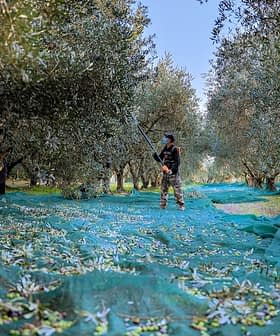Modern Techniques and Ancient Groves a Winning Combination for Solar Olives
The Lebanese producer has coupled traditional varieties and cultivation techniques with modern milling and marketing to produce an award-winning brand.
 Photo: Karim Arsanios
Photo: Karim Arsanios On the edge of the village of Kour, in the rolling hills of northern Lebanon, sprawl the olive trees of Solar Olives.
Many of the trees have grown here, about 450 meters above sea level, for hundreds of years, planted in the 19th century in orderly rows on overlapping terraces reinforced by buttresses of dry-piled stones.
Sure, the design of the product or the technology used to make our extra virgin olive oils might be very advanced, but tradition is the essence of what we do.
Untouched by petroleum-based fertilizers or pesticides, the producers behind Solar Olives craft one of the world’s best olive oils from these trees.
This was evidenced when the Lebanese producer earned a Gold Award at the 2022 NYIOOC World Olive Oil Competition for its organic delicate Souri, which the judges said had tasting sensations of flowers, vanilla, berry, red fruits and apple.
See Also:Producer Profiles“Tradition is so relevant to us,” Karim Arsanios, a chef and owner of Solar Olives, told Olive Oil Times.” Olive trees have been with us for millennia. So we try to infuse tradition into our products. Sure, the design of the product or the technology used to make our extra virgin olive oils might be very advanced, but tradition is the essence of what we do.”
“Even the name of our product, Solar, has been created with tradition in mind,” he added. “As we have joined sun, the sol, with ‘a’ and ‘r,’ which connect us to my parents who are not with us anymore and took care of the olive trees with so much passion for so many years. “We were so happy to learn of the Gold Award. It came as a beautiful surprise.”
Located in the heart of a fertile region where olives have been grown for millennia, the family’s sizeable stone-walled country house was built in the first half of the 19th century, when olive growing started to assume a relevant role for the Arsanios family.
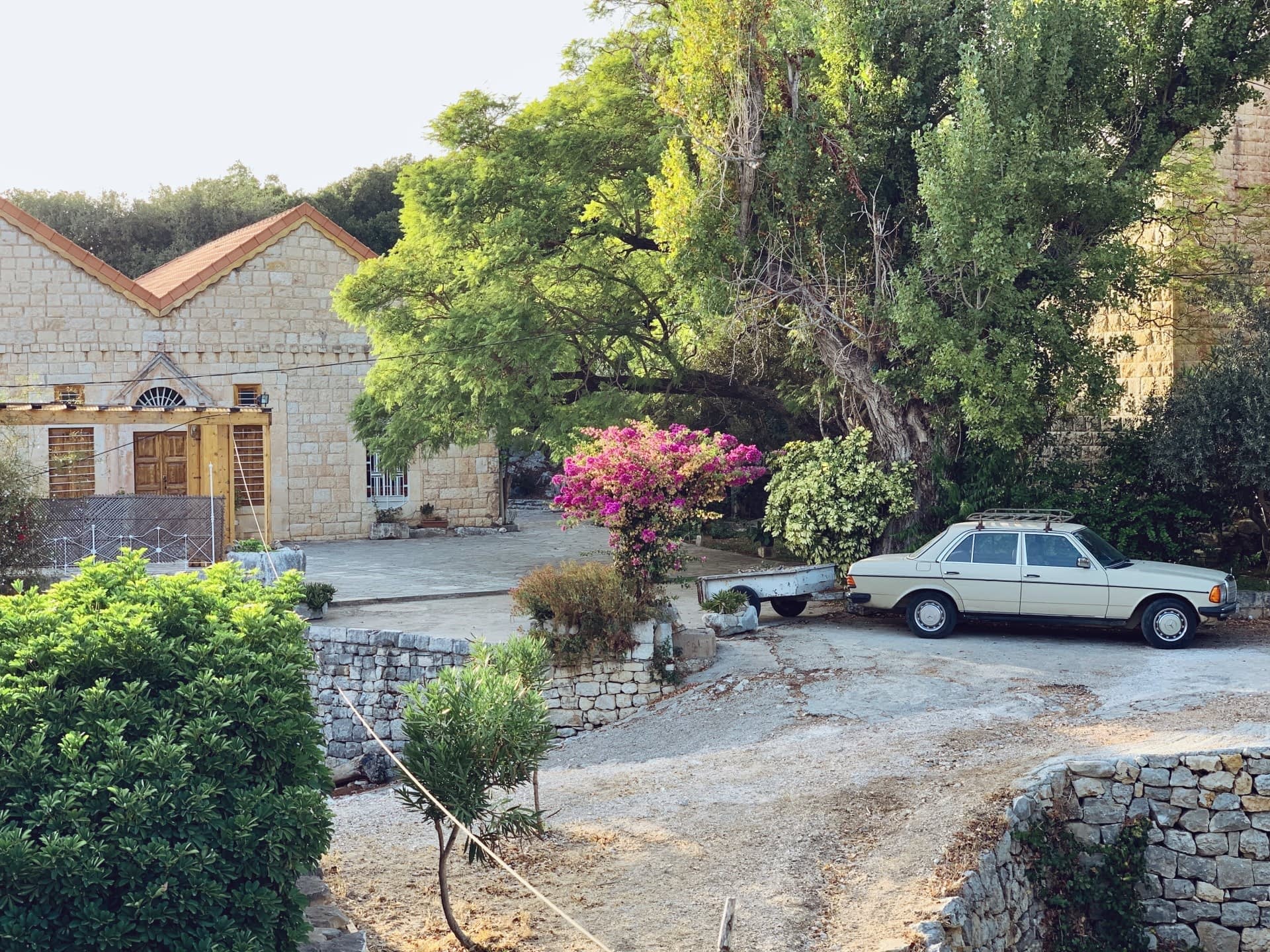
Photo: Karim Arsanios
“That experience, that knowledge has passed from one generation to the next,” Arsanios said. “In recent years, we added a few things and changed others, of course, but a fully organic approach and the constant attention to the health of our olive trees are always there.”
“We are lucky because we live in a region not far from the sea, so there are specific mineral contents in the alkaline soil,” he added. “That also means that when it rains, the soil tends to have excellent water retention. Plus, at our moderate altitude, winters are not too cold. In the summertime, it can be warm, but we still enjoy the breeze.”
Understanding that soil health is key to his success, Arsanios allows plenty of other vegetation to grow among the olive trees and allows his neighbor’s chickens to roam free as well.
Both of these techniques help Arsanios strengthen the biodiversity of his olive groves while naturally keeping pests and pathogens in check.
“Of course, you still need to go through the trees every day, look at them, prune them when needed,” he said. “Of course, you have to check the olives as they grow, to remove those eventually attacked by insects, making sure the trees and their fruits are strong.”
While the family farm is steeped in tradition, the latest generation is not afraid to make changes in their efforts to maintain quality. As a result, the traditional press was recently abandoned in favor of taking the olives to a new mill.
The family further innovated by changing the schedule of their harvesting operations based on learning about more up-to-date best practices.
“In recent years, I felt a few things needed to be changed,” Arsanios said. “Once, we waited for the first rain to come in before proceeding with the harvest.”
“I found that to be the most awkward time to harvest, given the effects of rain on the trees, the olives and the operations,” he added. “So we set up a new approach, harvesting much earlier than that, sacrificing some volume but significantly enhancing quality.”
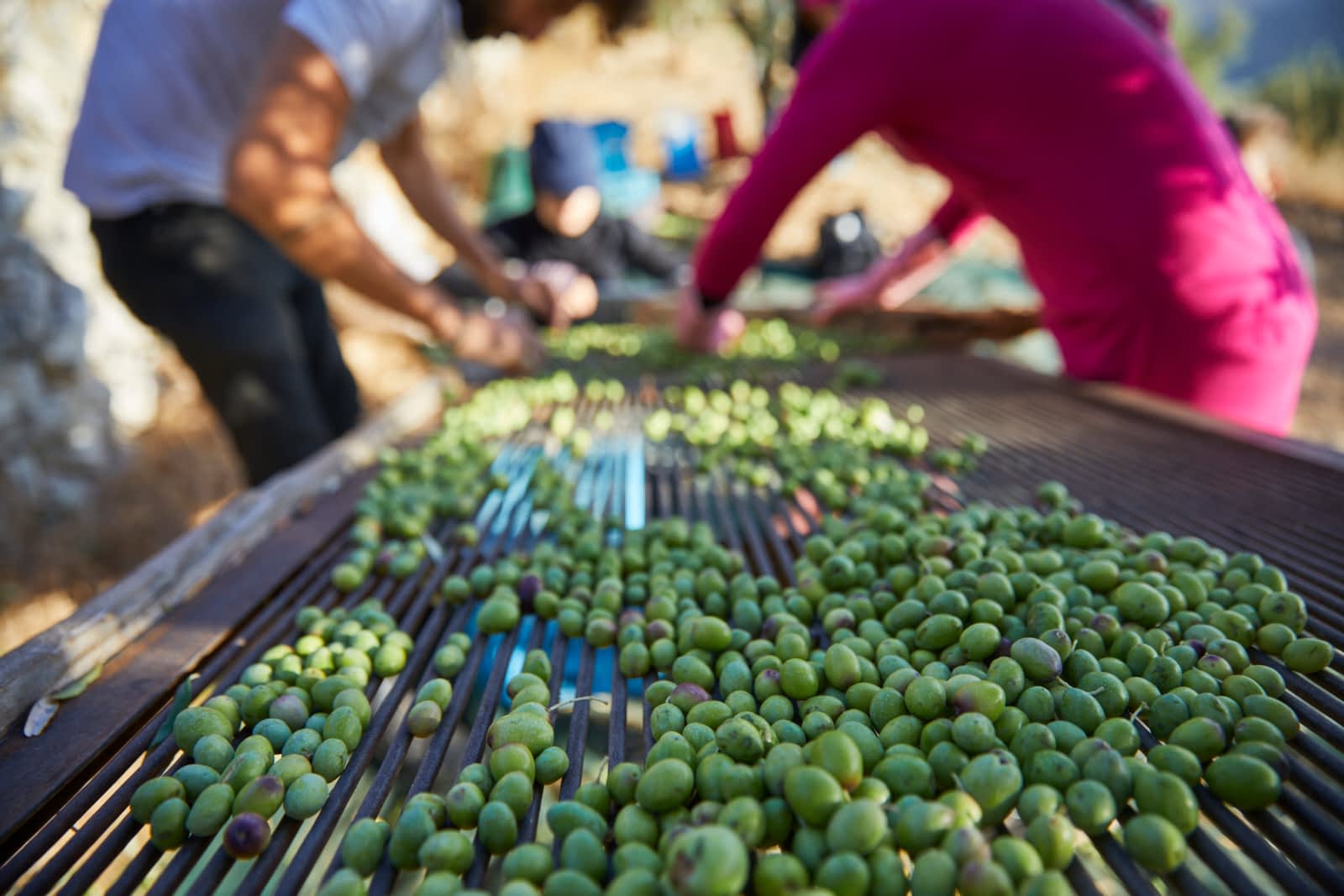
Photo: Karim Arsanios
The majority of the company’s olive trees are of the Souri cultivar, which was once also known as Roman, a name primarily used to show the ancient origin of this variety. Souri has been planted by the Arsanios family for generations, with the youngest trees being slightly more than 20 years old.
“Ninety-five percent of our trees are Souri. Although we have some Kalamata olives, these are only for self-consumption,” Arsanios said. “We use Souri both for olive oil and table olives.”
“The way we like to eat them in Lebanon is to harvest the olives, and three months later, having rested in a brine, they have a distinct bitterness paired with the spiciness of the brine,” he added. “The same happens with our extra virgin olive oil. It has a distinct bitter note; still, it also shows some sweetness.”
According to Arsanios, Souri olives show slightly different characteristics throughout the harvest season.
“It takes us a month to complete our harvest,” he said. “During that period, you can see the fruit ripening, going from green to yellow and finally to black. These stages come with changing aromas and tastes, a different balance of Souri’s unique characteristics.”
Every day, the olives are transformed, and the resulting olive oil is stored in steel containers, protected from oxygen, light and temperature fluctuations.
Arsanios also mooted a potential expansion of Solar Olives, with the possible addition of new olive groves containing different varieties. “We would like to begin experimenting with blends,” he said.
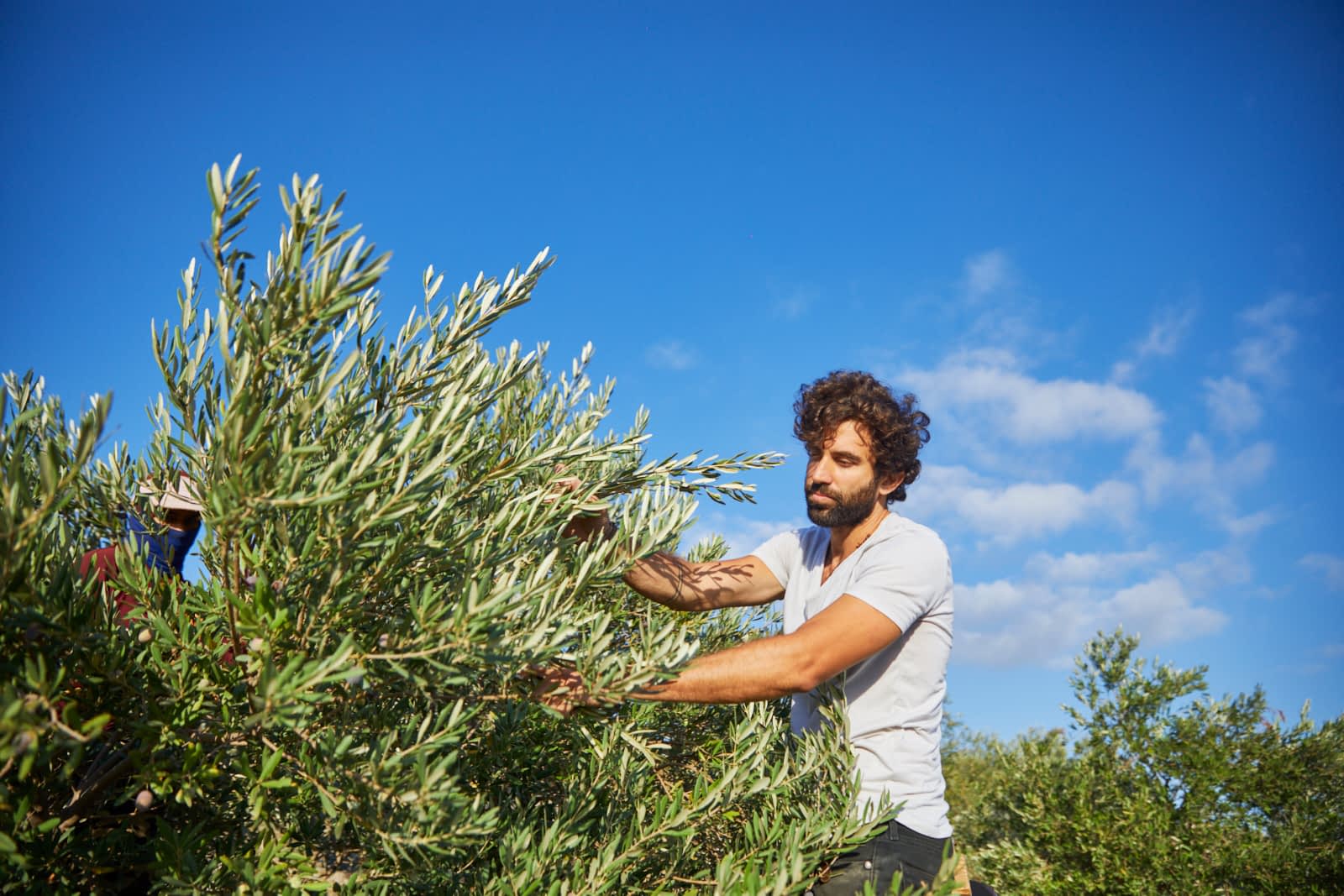
Karim Arsanios
Due to the specific qualities of the soil and the generous climate, Solar Olives currently does not need to irrigate its trees. However, the climate is changing, and the need to invest in drip irrigation systems might not be far off.
“Maybe we will need to turn to irrigation in the years to come because of climate change,” Arsanios said. “Things are changing. We do not know how climate change will affect farming, but we can see in north Lebanon wildfires happening earlier in the season. As we expect very hot summers, wildfires will be something to consider.”
Another significant challenge for the producer is promoting an olive oil culture in the country. Despite being home to some of the oldest olive trees in the Mediterranean, and known since Phoenician times for its olive oil trade, Lebanon is currently a tough market for extra virgin olive oil.
“Not many Lebanese are currently exploring the different health and flavor profiles of excellent extra virgin olive oil,” Arsanios said. “Most of them will buy cheaper olive oils.”
While part of the problem is the result of the current economic crisis that has crippled the economy, Arsanios believes much has to be done to spread olive oil culture.
“Having said that, we feel lucky as we nurture our relationship with the land,” he said. “We live in such a fast-paced hyper-capitalist society, and we tend to be severed from nature. We do not know what we eat, where food comes from.”
“That is why we are working on the idea of transforming this beautiful ancient house into a farmhouse where guests could enjoy our beautiful surroundings, walk among the trees, taste excellent olive oil and come back to the roots,” Arsanios added.
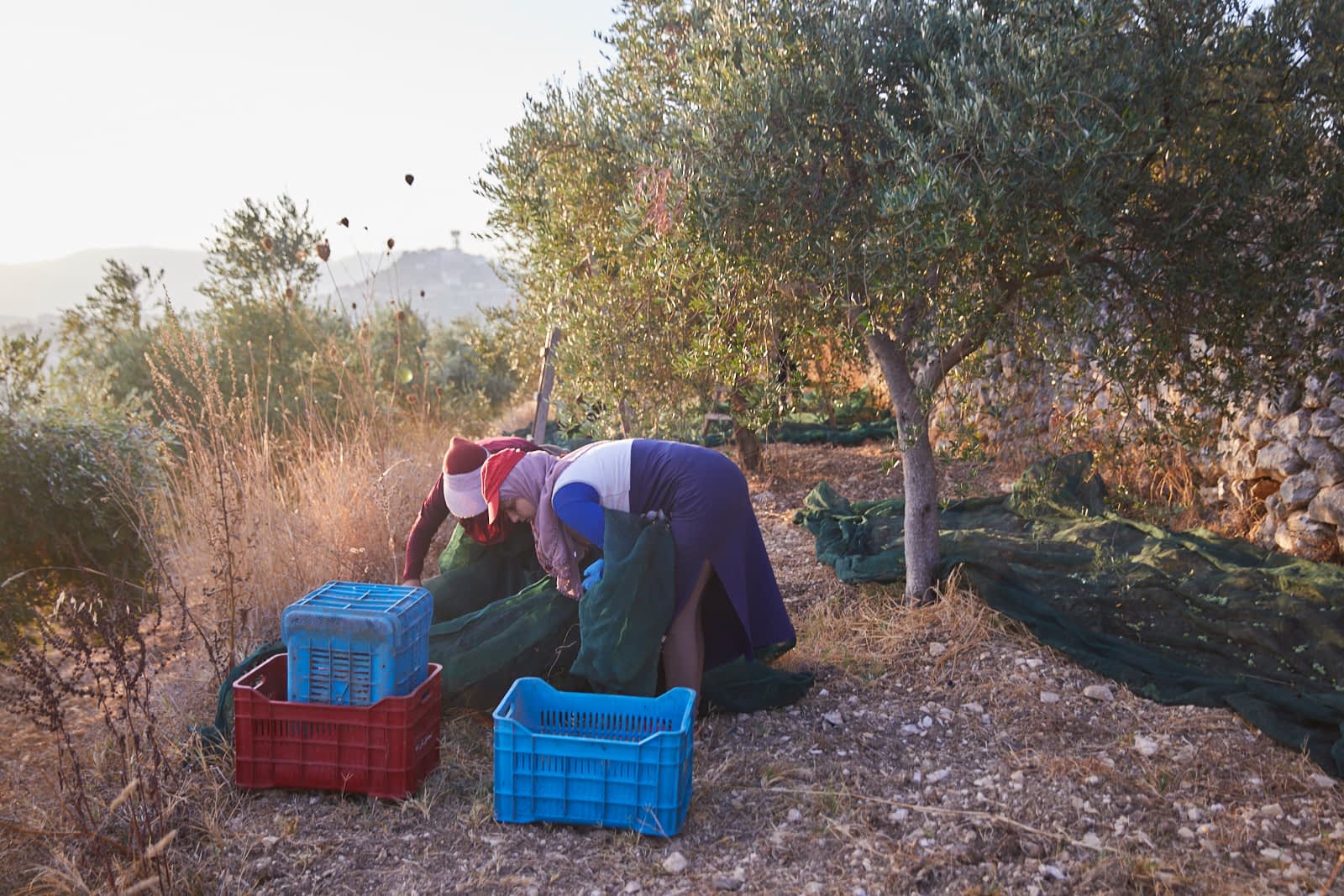
Photo: Karim Arsanios
Last year, Solar Olives organized the “olive picking day” where guests could explore the groves and taste Arsanios’ olive oil-centric recipes. “It was an amazing day, and we will do that this year as well,” he added.
However, it will take more than Arsanios to promote an olive oil culture, and the producer will need help from his neighboring olive farmers.
“When we introduced those innovations, some of them were very perplexed. Now that they see the results of our organic approach and the techniques we apply to take care of the trees, they are also becoming interested in that,” he said.
“Slowly, people might be starting to realize how big a difference there is between lower quality olive oil and excellent high-quality extra virgin olive oils,” Arsanios concluded.


